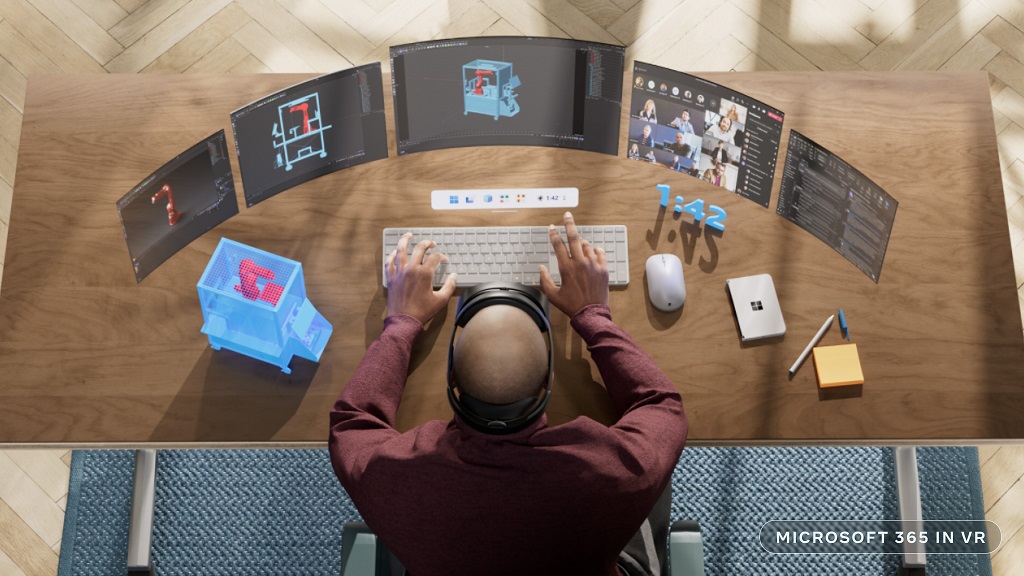What you need to know
- Microsoft has announced plans to bring Microsoft 365 and Xbox Cloud Gaming to Meta Quest devices.
- Word, PowerPoint, Excel, Teams, Outlook, and Game Pass will be accessible on Meta Quest 2 and Meta Quest Pro.
- Windows 365 Cloud PC service is also coming to Meta Quest devices.
Microsoft is bringing its vast suite of productivity and entertainment services to Meta Quest 2 and Meta Quest Pro devices in a newly announced partnership (opens in new tab) with Meta. Microsoft 365 apps and services, such as Word, PowerPoint, Excel, Outlook, and SharePoint, will soon be accessible on Quest devices.
The company is also bringing Mesh for Microsoft Teams to the platform, which “builds on years of research and Microsoft Cloud innovation, from Azure Digital Twins to Dynamics 365 Remote Assist and Teams video meetings.” Mesh for Microsoft Teams on Meta Quest devices is designed to help people gather virtually using Meta’s VR and MR headsets.
Windows 365 is also coming to Meta Quest devices, allowing users to stream a Windows Cloud PC directly to the headset for access to personalized apps, content, and settings.
Lastly, Microsoft has announced that it’s also bringing Xbox Cloud Gaming to the Meta Quest Store, which will allow Game Pass subscribers access to hundreds of games that can be streamed directly to the headset, just like Windows 365 Cloud PCs.
No word on when these apps and features will begin rolling out on Meta Quest devices, but the partnership between Meta and Microsoft has been confirmed by Microsoft’s president of collaborative apps and platforms, Jeff Teper:
“As a platform company, our approach to workplace productivity and collaboration is to ensure the software experiences we deliver can benefit users on all their favorite devices. In that spirit, today we are announcing several ways we are partnering with Meta to provide customers with more choice and security as they venture into the metaverse.”
This partnership now raises an important question: What does the future hold for HoloLens? Is Microsoft still interested in building its own Mixed Reality hardware, or would it prefer to build software and services on top of other Mixed Reality platforms instead? We’ll have to wait and see.





